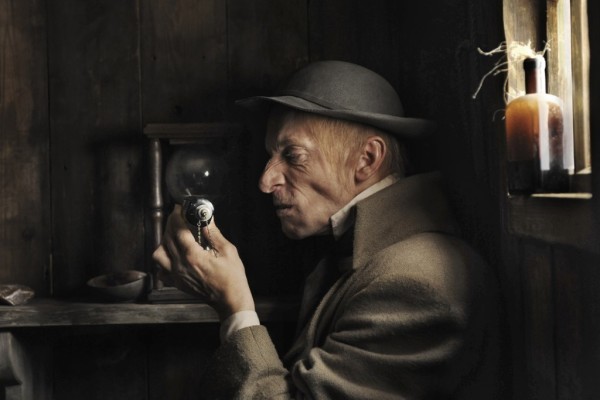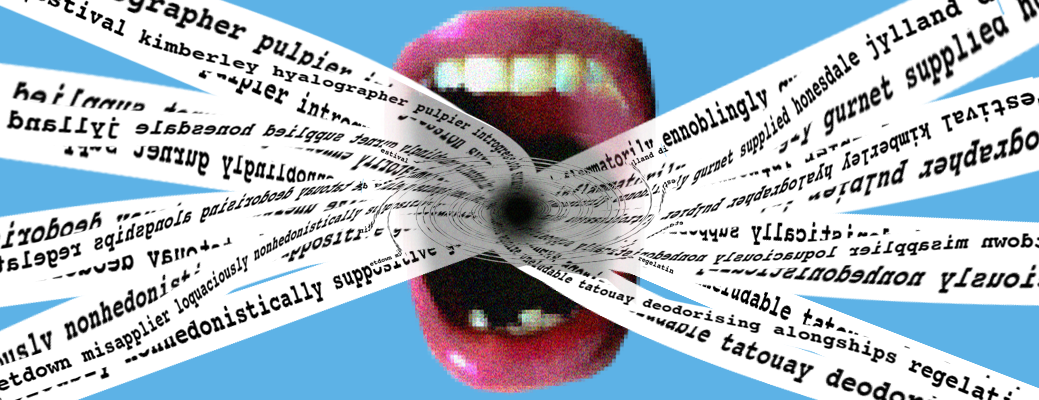by Ela Bittencourt
Image courtesy of Lincoln Center Press
Each year Film Comment Selects at Lincoln Center presents an eclectic mix of films they term, among other things, “the rare and the rediscovered.” Two noteworthy films at the festival this year were literary adaptations, remarkable for the gusto with which they handled the original texts.
Faust, by Russian filmmaker Aleksandr Sokurov, belongs to the “rare” category, since it may not easily find an American distributor. The film won the Golden Lion award in the 2011 Venice Film Festival. Sokurov is famous for his long takes. His Russian Arc, filmed in a single shot, was a piece of supreme fluidity. He is less interested in plot than in drawing our attention to how time unfolds. Mother & Son, for example, was a quiet meditation on the last day in a woman’s life, exploring the textual, ritualistic richness of minute moments.
Sokurov bases Faust on the famous text by Wolfgang von Goethe. The film is both a continuation and a departure for Sokurov. Visually it contains key elements of Sokurov’s art; for example the film features distortions (an entire image leans one way), to emphasize the subjectivity of looking. The blurring of shots adds a sense of emotional vertigo. Faust, however, unlike Sokurov’s other films, has a clear narrative thrust, in the form of the story of Faust’s sensual infatuation with young Margarethe.
Sokurov has put his own spin on the material: Mephistopheles becomes a lascivious pawnbroker, possessed of mysterious powers. Sokurov delivers a Faust we can relate to; he renounces religion in the name of science, but finds his pursuit of knowledge only increases his sense of alienation and disenchantment.
Rainer Werner Fassbinder’s Despair, based on Vladimir Nabokov’s novel of the same name belongs to the “rediscovered” category. Made in 1978, the film has rarely been screened. A ruined chocolate manufacturer decides to fake his own murder to collect insurance money. The tension in the novel and in the screen version hinges on the choice Hermann Karlovich (Hermann Hermann, as he calls himself), makes when choosing his double to kill; a man who bears no resemblance to him.
Similarly to Sokurov’s work on Faust, Fassbinder contextualizes the novel he is working with. In the novel, Nabokov names the year as 1930, but his style conveys a sense of timelessness. Fassbinder chooses to accentuate the epoch’s political events, adding the presence of the Nazi Brown Shirts, symbols of swastika, degenerate art, and scenes in which Jewish stores are vandalized. By bringing history to the forefront, Fassbinder ties the story of Hermann’s unraveling to Nazi Germany, setting Hermann’s paranoia against the growing surveillance of the state.
Like Sokurov, Fassbinder succeeds in making an engaging and moving film by staying close to his character. Hermann catches himself losing his mind. He watches himself making love to his wife; he suffers from delusions, seeing the same objects and people incongruously in two places. As in any great Nabokovian puzzle, Hermann is trapped, like a character in a play who keeps walking onto the wrong set. He moves from murdering his unlikely doppelganger, believing himself to be in complete control, to becoming trapped in his own lies and usurped personas.
Dirk Bogarde is brilliant in the role of Hermann—his progression from a cool, jeering sophisticate to an unhinged wreck is chilling. Fassbinder’s high farce even spoofs Nabokov himself via Hermann’s Russian background and gentility, and his dexterity with words and morbid humor.
In the end, both films invent a unique visual language to make literary characters come alive on the screen. They masterfully convey the claustrophobic reverie of dreams via their main theme, the workings of a human mind.





